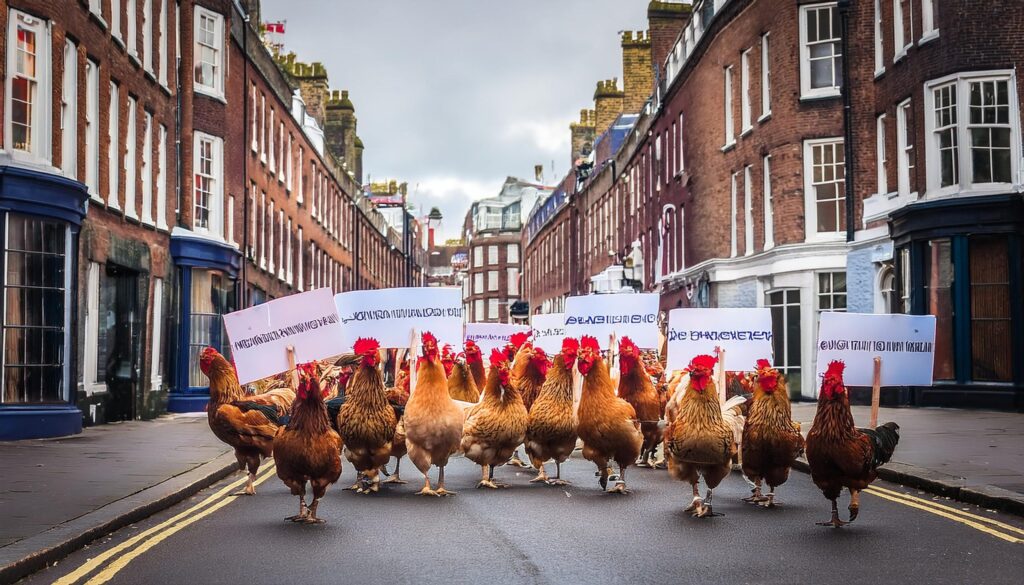On October 1st, 2024, the UK implemented new poultry registration laws, commonly referred to as the “Chicken License.” Under these regulations, anyone in the UK who keeps even a single bird, not just chickens but all outdoor birds, must officially register as a poultry keeper. This change, implemented by the Department for Environment, Food and Rural Affairs (DEFRA), has sparked a significant societal response due to the apparent absurdity of the law. Prior to this shift, a “flock” was usually defined as comprising 50 birds or more, but the new rules drastically redefine a flock to include just one bird.
The stated purpose for these stricter registration requirements is to safeguard both domestic and wild bird populations from avian influenza outbreaks. However, there is widespread skepticism and cynicism among the public regarding the true motives behind this legislation. Many individuals interpret these new measures as part of a larger governmental strategy to increase oversight of personal farming and self-sufficient living. The suggestion that government oversight is evolving into an intrusive measure against ordinary people has resonated with a segment of the population, leading to concerns about increasing regulation of personal freedoms under the guise of health and safety.
In response to the absurdity of the legislation, many people have engaged in somewhat humorous and creative forms of protest. Leading up to the registration deadline, numerous social media users and concerned citizens expressed their views by flooding the DEFRA website with registrations for non-living entities, including frozen chicken products, rubber chickens, and even unhatched eggs. This wave of registrations served as a form of satire that underscored the significant pushback against what many perceive as overreach from government authorities. This form of rebellion indicates that while the laws may be in effect, they are met with a healthy dose of public dissent.
The scene on social media is telling; accounts of people sharing their experiences of registering their unusual “chickens” underscore the duality of government intervention versus public autonomy. The conversations on platforms like Twitter (now X) reflect that citizens are both bemused and frustrated by this new law. As they document their registration attempts, they create a communal experience that not only lampoons the new rules but also reinforces a sense of solidarity among those affected by such regulatory changes.
Moreover, the sociocultural implications of the Chicken License extend beyond mere humor; they reflect a broader unease regarding governmental authority in personal matters. This initiative has invoked discussions surrounding the limits of government power and the autonomy of individuals to manage their own living circumstances, particularly in the realm of food production and self-sufficiency. As more individuals aspire to live sustainably by raising their own food sources, the new law might be perceived as an encroachment on these efforts, further fueling discontent and pushing for discussions about the preservation of personal rights in the face of escalating regulatory frameworks.
As the public grapples with the realities of the Chicken License, it remains essential to scrutinize the effects of such legislation on self-sufficient living and food autonomy. While the intention of protecting bird populations from avian flu is important, it becomes crucial to balance public health objectives with maintaining individual freedoms. If the response illustrated through social media is any indication, citizens are not merely accepting new regulations; they are actively critiquing and resisting what they see as overreach. The larger question remains: How far can governments go in regulating personal lifestyles for public health, and at what point does it infringe on individual rights and freedoms? The debate will likely continue as the implications of the Chicken License unfold in the coming months and years.

